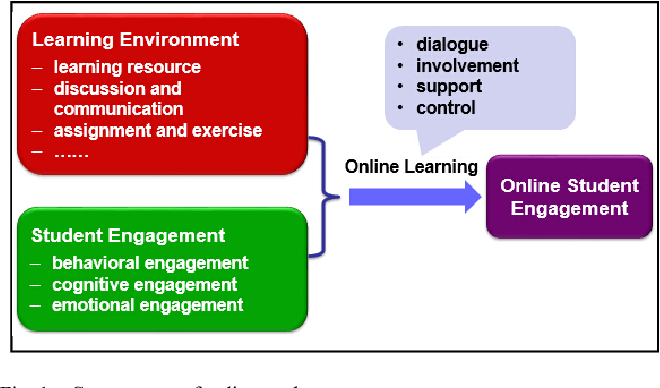Marketing Manager | Posted on | Education
The Impact Of Online Learning On Student Engagement And Participation
0
624 Views
Online learning has become a widespread mode of education, especially in the wake of the COVID-19 pandemic. While it has its challenges, many educators and students have found online learning effective in delivering educational content. One area in which online learning has shown particular promise is engaging students and encouraging their active participation in the learning process. This mode of education has many benefits to instructors, students, and administrators; let’s explore some of the impacts it has had on learners’ engagement and participation.

Flexibility
Online learning allows students to learn at their pace and schedule. Unlike in a conventional system where the educators teach at a defined time and speed that ensures the syllabus is covered on time. Online education accommodates learners’ strength and weaknesses, which help the coach prepare material as per the study style that the student is more comfortable with and they offer. This can increase student engagement and participation as students balance their coursework with other commitments.
Accessibility
Nowadays, there is greater education accessibility because of an online presence. It has no geographical limitations or mobility issues. With the ability to access tutors and course materials from anywhere with an internet connection, students can engage in coursework from their homes. And instructors are readily available as they have fast responses 24 hours a day, so it can always be a learning period for you. It has also helped students gain valuable communication, time management, organization, and collaboration skills.
A diverse range of resources
Online learning offers scholars access to various resources, including online libraries, research databases, and academic journals. Some resources include videos, graphics, animations, quizzes, and other multimedia elements that make learning more engaging and exciting as learning styles differ. This allows students to engage with diverse perspectives and ideas, leading to more meaningful discussions and deeper learning.
Interaction
Online learning platforms offer various tools for students to interact with their peers and instructors. These tools can include discussion boards, chat rooms, and video conferencing. Students can engage in discussions and group projects with their peers and instructors, increasing participation and fostering community. Besides, some students, especially those who don’t like being in social places, can make friends and learn how to relate to others outside their comfort zones.
Motivation
An excellent online learning student must be self-motivation and disciplined to succeed. Students motivated to learn can be more engaged and participate more actively in online courses. But, students who lack motivation may struggle to engage and participate in online learning. Thus, for those lacking motivation, their tutors find ways that will make the students long for the next class. These can be teaching with real-life scenarios, making jokes between sessions, graduating them when they improve, and supporting the students every step of the way.
Personalization
You cannot be wrong in everything. Online learning platforms allow scholars to customize their learning experience. Here, students focus on the areas they need to improve, skipping content they already know and saving time and energy. This way, students are attentive during learning sessions to ensure they grasp everything and ask questions requiring more clarification.
Online learning has been and will grow to be a valuable tool for increasing student engagement and participation. But, there is the need to deal with the challenges it presents, such as the lack of face-to-face interaction and the need for students to be self-motivated and comfortable with technology and have skills. Therefore, a proper and effective support system must be developed to help the students overcome these challenges and engage actively in online learning.
